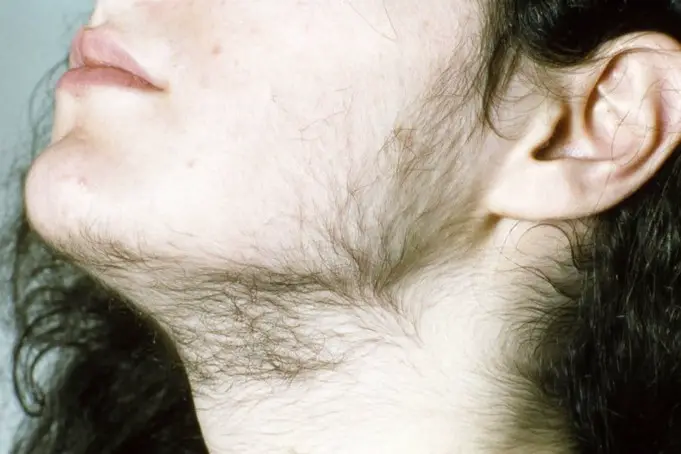Hair is something that grows on our body whether we want it or not. How they grow however depends on some factors. Nevertheless, if you know your body very well, and you notice the growth of hair, texture and location has changed, then it might be a clear indication of a health issue, and I’m here to explain why.
A number of things could cause these changes, and these are some of the kissable explanations; First, let’s establish the different types of hair that grow on our body.
a. Terminal hair is much stronger thicker longer, and it’s commonly darker than the belly’s hair. This hair usually starts growing during puberty. This type of hair that grows when the body undergoes some serious hormonal changes, and this is what you need to maintain your focus on.
b. Vellusw hair, unlike the terminal hair, is fragile and soft hair that covers the entire body (mostly on our backs and chest). Vellus hair is usually unnoticeable because they are fine and thin.
1. Genetic
If you are experiencing a sudden growth of thick black hair on what’s commonly referred to as men’s patterns, then I suggest you go through old pictures of your grandmother. No matter what technology has served us, we can’t play tricks on genetics.
2. Ethnic background
Studies have proven to us that the difference in an ethnic group can more or less create an overgrowth of hair. Mediterranean women and Middle Eastern heritage are known for this sort of condition. While other ethnic groups are somewhere in between.
3. Hormonal imbalance
A sudden growth in hair can be as a result of male hormone imbalance. Men and women have these hormones, but it’s significantly low in women compared to men and at a specific ratio compared with their female hormones.
If the body’s testosterone level spikes, then the body has too many male hormones at work, and this can cause some masculine changes in the body. Reduction in the level of estrogen in the body could also cause this to happen. This could be as a result of menopause. In whatever case, the male/female hormone profile can go out of balance.
4. Adrenal gland disorder
Adrenal glands are found just above the kidneys and there changes in the way hair grows if the adrenal glands don’t work the way they ought to. Uncontrollable hair is one of the most natural symptoms of this anomaly. Other symptoms would include;-Rise in blood pressure.-Weight gain especially in the upper part of the body.- headaches or migraine– tiredness and muscle weakness- unbalanced blood sugar level.
5. Polycystic ovarian syndromes
Is another common cause of hirsutism, and if your menstrual flow is irregular, then there is a chance that you might experience excess hair on your body. The condition is caused when the ovaries are enlarged and contain small amounts of fluid known as follicles. Immediate medical attention is required if this the case. Symptoms linked with this condition would include;- mood swing- fatigue- headaches- sleep disorder (insomnia).
6. The growth of unusual tissue
When hirsutism appears suddenly, let’s say over the space of a few months, then you need to have it checked as soon as possible. The erratic hair growth could be a clear sign of an extreme increase in the level of your testosterone, and this can be as a result of abnormal growth of a tissue, or even a tumour, causing the release in male hormones.
This condition isn’t prevalent; nonetheless, if the changes occur this quick, then you need to need to visit your medical doctor before it results in something else. How comfortable are you with the hair on your body?
How often do you shave the hair on your skin? Do you prefer the natural look your hair gives you or you prefer to have them removed? I hope you found this article information? Share your thoughts in the comments.













